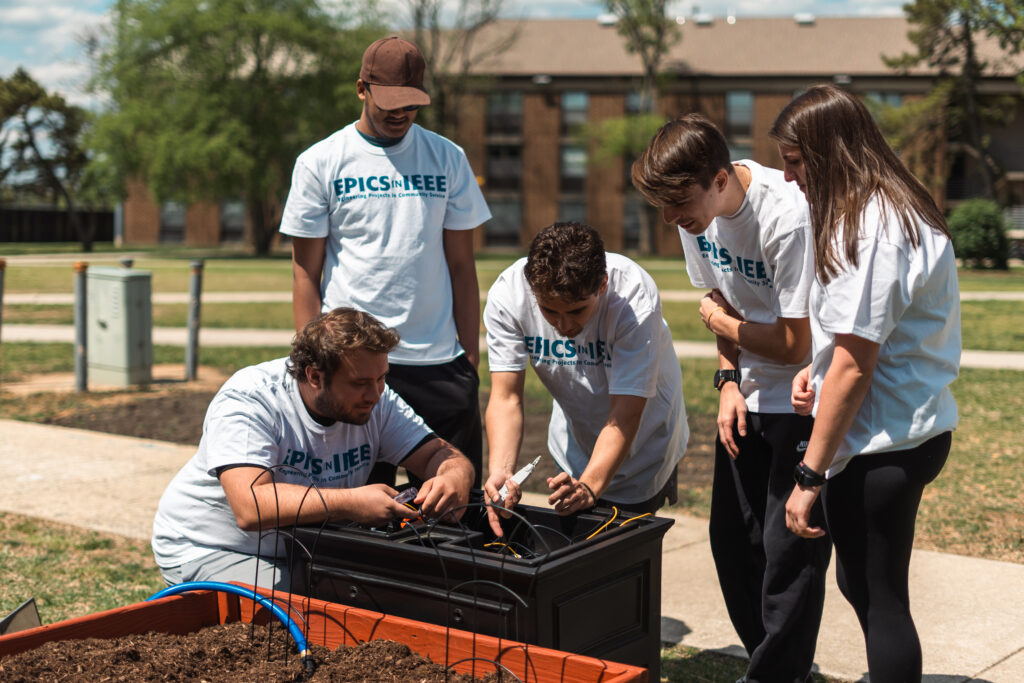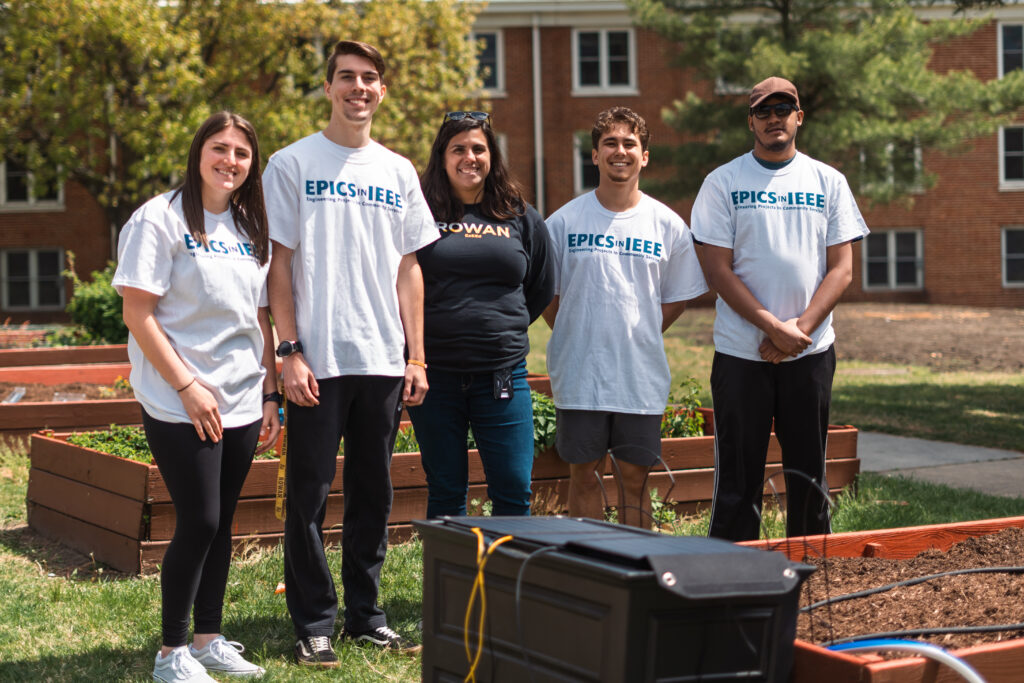Food insecurity on college campuses is not a commonly discussed issue, though it is extremely prevalent. On Rowan University’s campus alone, up to 48% of students have some sort of food insecurity, according to a survey done on campus. To combat this issue and support their peers, students from Rowan University’s Department of Experiential Engineering Education in partnership with Rowan Environmental Action League (REAL) have used a $8,800 grant from EPICS in IEEE’s Environmental Competition to maintain and upgrade the on-campus community garden grows food for students and the Rowan University food pantry.  Engineering students at Rowan have created a modular water system for raised bed gardens, a series of aerial drones for seeding, monitoring, and harvesting, and programs for educational outreach at the high school and elementary school levels.
Engineering students at Rowan have created a modular water system for raised bed gardens, a series of aerial drones for seeding, monitoring, and harvesting, and programs for educational outreach at the high school and elementary school levels.
The watering system for the community garden was created with the intention of complete automation. “Our moisture sensors will tell us when a certain threshold of moisture level is met. When below that threshold, the system will turn on, water the garden, until the threshold is met, in which case it will turn off,” explains Jason Blanda, an Electrical and Computer engineering major. “Also, we have water level sensors inside our barrels that will tell us when the water levels are too low…and the owners will be notified to refill the tank so that the system can run again automatically.” They also have a rain sensor to alert the system that the rain will water the garden and turn it off until it is needed again.
“Everything we grow here we grow from the feedback of students and what they want to see,” Maria Cardenas, the chair of the community garden explains. This includes carrots, strawberries, and more. Students can pick their own produce, and the rest will be harvested for the food pantry. “Last summer we actually donated about 75 pounds of fruits and vegetables.” The garden even offers social time with the student program called “Weeding Wednesdays,” which is communal time for garden-related tasks and social opportunities for students.

This project has provided fantastic opportunities and experiences for those who are involved. One notable example is cross-disciplinary work. The team involves members from multiple facets of engineering: with mechanical, electrical, computer, and engineering entrepreneurship majors participating. “Some of our students are mechanical engineers and they got to actually make circuits with the project, and then there’s also electrical and computer engineering students interacting with mechanical engineers,” explains Dr. Katie Barillas, an Experiential Engineering Education (ExEEd) instructor and faculty advisor for the project. The program has also opened doors for other opportunities as well. One student, Jack Thorpe, explains that the project helped him get a summer internship. “This is something that I’ve never worked on before, so something I had to research on my own and learn about to be able to make it a reality,” he says, showing one of the many benefits of the EPICS in IEEE program. The students also got hands-on experience with a community partner, which involved constraints that required the adaptability that they might need in a professional setting.
The outreach aspect of this project lies in high school and elementary school classrooms. The team worked in a local high school to develop the project further. “I am also working with a local high school in the area, Clearview High School, where they’re actually developing a drone that can do some seeding and also some harvesting through this IEEE EPICS grant that we received,” stated Dr. Katie Barillas. The grant also helped provide Lego sets for workshops with elementary school students.
With the grant that EPICS in IEEE provided for this project, students at Rowan University were able to make a positive impact on Rowan’s community by keeping the food pantry stocked and ensuring that students with food insecurities are supported sustainably. This project was funded through the EPICS in IEEE Environmental Competition in partnership with the United Engineering Foundation (UEF) and the IEEE Foundation.
Hear from the students themselves in the below video that describes this project in more detail!

Recent Comments